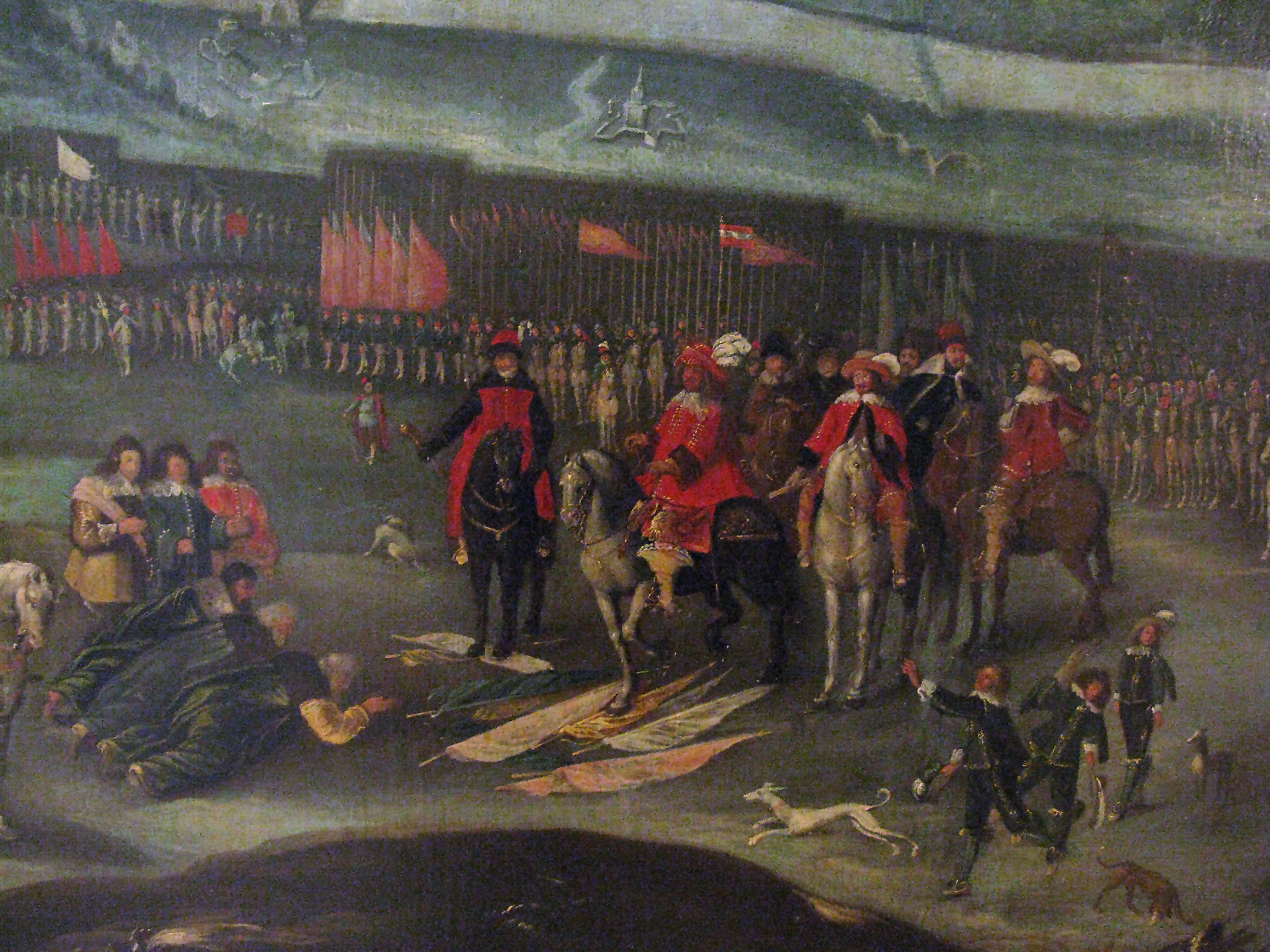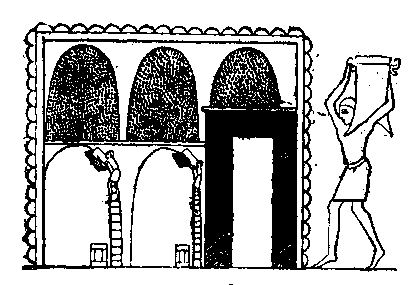|
Serfdom In Poland
Serfdom in Poland became the dominant form of relationship between peasants and nobility in the 17th century, and was a major feature of the economy of the Polish–Lithuanian Commonwealth, although its origins can be traced back to the 12th century. The first steps towards abolishing of serfdom were enacted in the Constitution of 3 May 1791, and it was essentially eliminated by the Połaniec Manifesto. However, these reforms were nullified partly by partition of Poland. Frederick the Great had abolished serfdom in his territories gained from the first partition of Poland. Over the course of the 19th century, it was gradually abolished on Polish and Lithuanian territories under foreign control, as the region began to industrialize. 10th to 14th centuries In the early days of the Kingdom of Poland under the Piast Dynasty in the 10th and 11th centuries, the social class of peasantry was among the several classes that have developed. The peasants had the right to migrate, to own ... [...More Info...] [...Related Items...] OR: [Wikipedia] [Google] [Baidu] |
Slave
Slavery and enslavement are both the state and the condition of being a slave—someone forbidden to quit one's service for an enslaver, and who is treated by the enslaver as property. Slavery typically involves slaves being made to perform some form of work while also having their location or residence dictated by the enslaver. Many historical cases of enslavement occurred as a result of breaking the law, becoming indebted, or suffering a military defeat; other forms of slavery were instituted along demographic lines such as Racism, race. Slaves may be kept in bondage for life or for a fixed period of time, after which they would be Manumission, granted freedom. Although slavery is usually involuntary and involves coercion, there are also cases where people voluntary slavery, voluntarily enter into slavery to pay a debt or earn money due to poverty. In the course of human history, slavery was a typical feature of civilization, and was legal in most societies, but it is no ... [...More Info...] [...Related Items...] OR: [Wikipedia] [Google] [Baidu] |
Serfdom In Russia
The term '' serf'', in the sense of an unfree peasant of tsarist Russia, is the usual English-language translation of () which meant an unfree person who, unlike a slave, historically could be sold only with the land to which they were "attached". Peter I ended slavery in Russia in 1723. Contemporary legal documents, such as ''Russkaya Pravda'' (12th century onwards), distinguished several degrees of feudal dependency of peasants. Serfdom became the dominant form of relation between Russian peasants and nobility in the 17th century. Serfdom most commonly existed in the central and southern areas of the Tsardom of Russia and, from 1721, of the subsequent Russian Empire. Serfdom in Little Russia (parts of today central Ukraine), and other Cossack lands, in the Urals and in Siberia generally occurred rarely until, during the reign of Catherine the Great (r. 1762–1796), it spread to Ukraine; noblemen began to send their serfs into Cossack lands in an attempt to harvest their ex ... [...More Info...] [...Related Items...] OR: [Wikipedia] [Google] [Baidu] |
Poland–Russia Relations
Poland–Russia relations ( pl, Stosunki polsko-rosyjskie, russian: Российско-польские отношения) have a long and often turbulent history, dating to the late Middle Ages, when the Kingdom of Poland and Kievan Rus' and later the Grand Duchy of Moscow struggled over control of their borders. Over centuries, there have been several Polish–Russian Wars, with Poland once occupying Moscow and later Russia controlling much of Poland in the 19th as well as in the 20th century, damaging relations. Polish–Russian relations entered a new phase following the fall of communism, 1989–1993. Since then, Polish–Russian relations have at times seen both improvement and deterioration. Historical Poland and Ancient Russia One of the earliest known events in Russian-Polish history dates back to 981, when the Grand Prince of Kiev, Vladimir Svyatoslavich, seized the Cherven Cities from the Duchy of Poland. The relationship between two by that time was mostly close a ... [...More Info...] [...Related Items...] OR: [Wikipedia] [Google] [Baidu] |
Peasant Uprising
A peasant is a pre-industrial agricultural laborer or a farmer with limited land-ownership, especially one living in the Middle Ages under feudalism and paying rent, tax, fees, or services to a landlord. In Europe, three classes of peasants existed: slave, serf, and free tenant. Peasants might hold title to land either in fee simple or by any of several forms of land tenure, among them socage, quit-rent, leasehold, and copyhold. In some contexts, "peasant" has a pejorative meaning, even when referring to farm laborers. As early as in 13th-century Germany, the concept of "peasant" could imply "rustic" as well as "robber", as the English term villain/villein. In 21st-century English, the word "peasant" can mean "an ignorant, rude, or unsophisticated person". The word rose to renewed popularity in the 1940s–1960s as a collective term, often referring to rural populations of developing countries in general, as the "semantic successor to 'native', incorporating all its condesc ... [...More Info...] [...Related Items...] OR: [Wikipedia] [Google] [Baidu] |
Monopoly
A monopoly (from Greek language, Greek el, μόνος, mónos, single, alone, label=none and el, πωλεῖν, pōleîn, to sell, label=none), as described by Irving Fisher, is a market with the "absence of competition", creating a situation where a specific person or company, enterprise is the only supplier of a particular thing. This contrasts with a monopsony which relates to a single entity's control of a Market (economics), market to purchase a good or service, and with oligopoly and duopoly which consists of a few sellers dominating a market. Monopolies are thus characterized by a lack of economic Competition (economics), competition to produce the good (economics), good or Service (economics), service, a lack of viable substitute goods, and the possibility of a high monopoly price well above the seller's marginal cost that leads to a high monopoly profit. The verb ''monopolise'' or ''monopolize'' refers to the ''process'' by which a company gains the ability to raise ... [...More Info...] [...Related Items...] OR: [Wikipedia] [Google] [Baidu] |
łan
Łan (in English ''lan''; in Latin ''laneus'', in German ''Lahn''), is an old unit of field measurement used in Poland. Since the 13th century, its value has varied from one location to another. A ''greater łan'' (also Franconian, King's, Old Polish) consisted of 43.2 morgs = 23 to 28 hectares. A ''lesser łan'' (Chełmno łan) was 30 morg ≈ 17,955 hectare. The term eventually derives from German ''Lehen'', "fee" (feudal land tenure).Aleksander Brückner: Słownik Etymologiczny Języka Polskiego. Kraków: Krakowska Spółka Wydawnicza, 1927, p. 306. The term ''łan'' was also used to indicate an average size of a peasant's tenured farm. Łan was further subdivided into ''zagony'' ("belts") and further into ''skiby'' ("slices"). In medieval times the size of a ''łan'' was anywhere between 3 and 50 hectares, but from the 13th century to 1857 in ''Great Lesser Poland (with Podkarpacie Subcarpathian Voivodeship or Subcarpathia Province (in pl, Województwo podkarpacki ... [...More Info...] [...Related Items...] OR: [Wikipedia] [Google] [Baidu] |
Paul Robert Magosci
Paul Robert Magocsi (born January 26, 1945 in Englewood, New Jersey) is an American professor of history, political science, and Chair of Ukrainian Studies at the University of Toronto. He has been with the university since 1980, and became a Fellow of the Royal Society of Canada in 1996. He currently acts as Honorary Chairman of the World Congress of Rusyns, and has authored many books on Rusyn history. Born in Englewood, New Jersey, Magocsi (his surname Magocsi is pronounced something like "magótchy", varying in different languages) is of Hungarian and Ruthenian (Rusyn) descent. He completed his undergraduate studies at Rutgers University B.A. in 1966; M.A. 1967, Princeton University in M.A. 1969, Ph.D. 1972. He then went to Harvard University, where he was a member of the Society of Fellows between 1973 and 1976. In 2013 he was awarded doctor honoris causa by the University of Prešov in Slovakia. Magocsi has taught at Harvard University and the Hebrew University in Jerusale ... [...More Info...] [...Related Items...] OR: [Wikipedia] [Google] [Baidu] |
Statutes Of Piotrków
The Piotrków Statutes () were a set of laws enacted in the Kingdom of Poland in 1496. King John I Albert made a number of concessions to the nobility, whose support he required in war. Among other things, the nobles were relieved of certain taxes and were granted exclusive rights to high Church offices. Additionally city burghers were forbidden from holding royal and national offices while the peasants were restricted in their mobility; according to the statutes, only one peasant was allowed to leave his home village per year and only one member of a peasant family was allowed to move to the towns. The statute also removed all tariffs on internal trade along waterways. See also *Nieszawa Statutes *Szlachta's privileges The privileges of the ''szlachta'' (Poland's nobility) formed a cornerstone of "Golden Liberty" in the Kingdom of Poland (before 1569) and, later, in the Polish–Lithuanian Commonwealth (1569-1795). Most ''szlachta'' privileges were obtained bet ... 149 ... [...More Info...] [...Related Items...] OR: [Wikipedia] [Google] [Baidu] |
Grain Trade
The grain trade refers to the local and international trade in cereals and other food grains such as wheat, barley, maize, and rice. Grain is an important trade item because it is easily stored and transported with limited spoilage, unlike other agricultural products. Healthy grain supply and trade is important to many societies, providing a caloric base for most food systems as well as important role in animal feed for animal agriculture. The grain trade is as old as agricultural settlement, identified in many of the early cultures that adopted sedentary farming. Major societal changes have been directly connected to the grain trade, such as the fall of the Roman Empire. From the early modern period onward, grain trade has been an important part of colonial expansion and international power dynamics. The geopolitical dominance of countries like Australia, the United States, Canada and the Soviet Union during the 20th century was connected with their status as grain surplus c ... [...More Info...] [...Related Items...] OR: [Wikipedia] [Google] [Baidu] |
Folwark
''Folwark''; german: Vorwerk; uk, Фільварок; ''Filwarok''; be, Фальварак; ''Falwarak''; lt, Palivarkas is a Polish word for a primarily serfdom-based farm and agricultural enterprise (a type of ''latifundium''), often very large. History Folwarks ( pl , folwarki) were operated in the Crown of Poland from the 14th century; in the Grand Duchy of Lithuania from the 15th century; and in the joint Polish–Lithuanian Commonwealth from the second half of the 16th century. Folwarks also developed in the Commonwealth-controlled Ukrainian lands. The institution survived after the 18th-century partitions of the Commonwealth until the early-20th century. Folwarks aimed to produce surplus produce for export. The first folwarks were created on church- and monastery-owned lands. Later the folwark system was adopted both by the nobility (''szlachta'') and by rich peasants (singular: '' sołtys''), but the ''sołtys'' positions were eventually taken over by the ''s ... [...More Info...] [...Related Items...] OR: [Wikipedia] [Google] [Baidu] |
Szlachta
The ''szlachta'' (Polish: endonym, Lithuanian: šlėkta) were the noble estate of the realm in the Kingdom of Poland, the Grand Duchy of Lithuania, and the Polish–Lithuanian Commonwealth who, as a class, had the dominating position in the state, exercising extensive political rights and power. Szlachta as a class differed significantly from the feudal nobility of Western Europe. The estate was officially abolished in 1921 by the March Constitution."Szlachta. Szlachta w Polsce" ''Encyklopedia PWN'' The origins of the ''szlachta'' are obscure and the subject of several theories. Traditionally, its members owned land (allods), [...More Info...] [...Related Items...] OR: [Wikipedia] [Google] [Baidu] |





